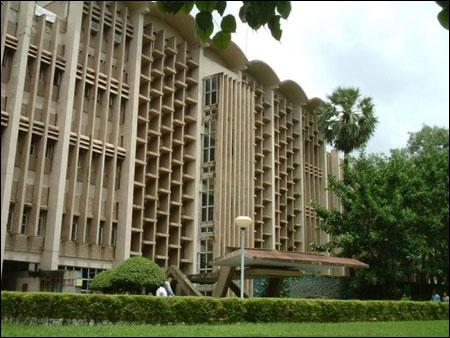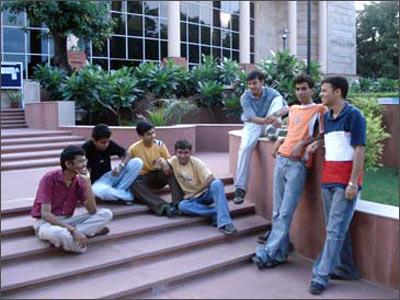 | « Back to article | Print this article |
IITs hike fees by 80 % for undergraduate courses
The fee revision that will be effective for the 2013 batch will be carried out periodically.
Now, an engineering degree from India's most coveted engineering institutes would come at a higher price.
The premier Indian Institutes of Technology council decided to raise the academic fee from Rs 50,000 to Rs 90,000 a year, a rise of 80 per cent.
This means students would have to spend about Rs 3.6 lakh for the four-year bachelor-of-technology programme, against Rs 2 lakh now.
The fee could be revised every year. A decision on this may be taken at another IIT council meeting.
"The fee hike would be applicable to students who would come in from the 2013 academic year," said an IIT director, on condition of anonymity.
IIT directors said operating expenses for campuses had risen, thanks to the high inflation. The rise in fees would provide the institutions a much-needed cushion, they added.
Please click NEXT to continue reading...
The fee rise would burden students from middle class backgrounds
A fourth of the students whose parental income is less than Rs 4.5 lakh a year are given 100 per cent scholarships.
Also, no tuition is charged from Scheduled Caste and Scheduled Tribe students. Free mess, free hostel and book bank are also provided to SC and ST students.
IITs have been considering increasing the programme fee to Rs 4 lakh a year. But given the resistance, this may be done in a staggered manner.
"After the Sixth Pay Commission, IITs' faculty costs have risen about 70 per cent. As salaries have risen, the money realised through a fee rise would partly go towards meeting the increasing burden of salaries and scholarships," M Ananda Krishnan, chairman of the board of governors, IIT Kanpur, had told Business Standard.
The IITs acknowledged a substantial rise in fees would burden students -- the number of students from the upper middle class had declined and that from lower classes had risen.
Such students said the fee at IITs is high. They are reluctant to take loans. IIT officials said once the National Academic Depository Bill is passed, it would enable a shift to "demat" degrees.
Then, the degrees of IIT graduates would reflect an obligation to repay the institution and money would come through the employer.
If one compares the fee to those in engineering and technology institutions in the West, the difference is stark.
For instance, at the US-based Massachusetts Institute of Technology, consistently ranked among the world's top 10 engineering institutions, the annual tuition is Rs 22.55 lakh ($41,770).
At Carnegie Mellon, the annual tuition for the graduate engineering programme is Rs 24.23 lakh ($44,880). After factoring in other costs, the fee stands at Rs 27.54-31.86 lakh ($51,000-59,000).
The IIT council also said peer reviews of each IIT would be carried out once every five years. The review committee would comprise five eminent people from industry and academia.
For new IITs, a similar exercise would be carried out on the completion of five years.


